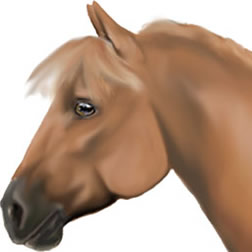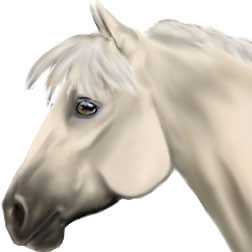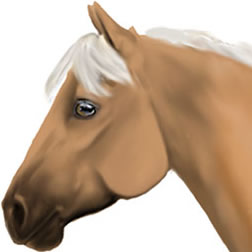|
|
|
|
|
|
|
|
 |
 |
 |
 |
Message thread at CPP
<< Back to previous page
***trouble horse ***
Its where people can talk about their trouble maker horses and ask questions about them | yah when Meghan jumps its beautiful | 
TShorses & Meghan | | 2012-02-18 12:48:52 | | | yeah that is kinda true for me i don't care if he just jumps and just carries on i only get mad if he has a huge taking off spook (he knows the one rein stop very very well by now:)he tends to spook alot more if i'm bareback i've only fallen off him once bareback because he had a huge freak attack at some noise in the woods. | 
mollie 123 & Cammo | | 2012-02-18 15:46:01 | | or--he has learned if he acts up when you are riding bareback you fall off more often. don't underestimate horses' intellegence
| 
Jane Crandal & JB | | 2012-02-18 23:46:08 | | | jane you might be able to answer this but does horses that go threw the EPM treatment do they need to be on stall rest or does it depend on how they respond to the treatment?oh and by the way we are just going to test for it this week | 
mollie 123 & Cammo | | 2012-02-19 23:27:50 | | | ha ha mybuety my arab doesn't look that graceful when he spooks he is stiff legged and has cuts all over his body from other horses and a chunk of mane is missing ha ha i have no idea what type of arab sinbad is he doesn't have like the full arab face | 
mollie 123 & Cammo | | 2012-02-20 16:51:55 | | Here is what I read about EPM from thehorse.com
Potentiated sulfonamide medications in combination with pyrimethamine used to be the sole and primary means of treatment, requiring prolonged administration for many months. This strategy is still an option, with a commercial formulation (ReBalance) available that combines pyrimethamine and sulfadiazine for ease of administration. Adverse side effects can occur specific to the mode of action: Potentiated sulfonamides inhibit not only the parasite's synthesis of nucleic acids, particularly para-amino benzoic acid (PABA) that is critical for producing folic acid, but they also limit the host's ability to do the same. Folic acid is necessary for building mammalian blood cells, so long-term treatment with sulfonamide-pyrimethamine can cause anemia. Because of the drug's folate-inhibiting effects on growing fetuses, caution should be taken in treating pregnant mares.
Ponazuril (Marquis, manufactured by Bayer Animal Health) is another treatment option, one that is prepared from herbicidal chemicals. This drug is useful since S. neurona is a protozoon that contains plantlike (chloroplast) components. Ponazuril directly attacks the protozoa without exerting effects on mammalian tissue, making it a safe option for EPM treatment. It need only be given once a day and has good absorption when administered orally. A usual course of treatment is 28 days.
Nitazoxanide (Navigator, manufactured by IDEXX) inhibits specific enzymes required for protozoan survival. As opposed to the previous two medications that inhibit replication of the protozoa, this drug directly kills the organisms. However, this medication also interferes with enzyme production in some bacteria and viruses, including bacterial flora within a horse's gastrointestinal tract. It is important when using nitazoxanide to dose the horse at an accurate body weight and to monitor for colic, diarrhea, or intestinal abnormalities. The 28-day treatment begins with a half dose (25 mg/kg), then after five days the dose is increased (50 mg/kg) for the remaining treatment course.
Because of the significance of adverse side effects, nitazoxanide has often been reserved for use in horses that have either not responded to other treatments or have relapsed following treatment with the other two options.
So it is possible to treat EPM. However, if your horse is showing symptoms ---
Even with the implementation of timely treatment, not all horses with EPM will recover completely. David Granstrom, DVM, PhD, one of the pioneer researchers into EPM, describes what happens to the central nervous tissue:
Clinical signs of EPM are caused by direct infection and loss of nervous tissue, as well as inflammation and swelling in the local area. As the infection subsides, function may return if sufficient nervous tissue remains to transmit nervous impulses through the affected area. If the damage is too severe, loss of function may be permanent. With prompt diagnosis and appropriate treatment, approximately 10-20% of infected horses may recover fully, as based on the clinical impression of veterinary specialists with extensive experience.
The protozoa that cause EPM evade a horse's immune system, invade the central nervous system, and damage nerve tissues. Effective treatment relies on drugs that can cross the blood-brain barrier to inhibit multiplication of the protozoa so the horse's immune system can eliminate the parasite, or drugs that directly kill the organisms. Ideally, EPM medications should exert minimal adverse effects on the horse. A timely diagnosis limits the extent of nerve damage and improves the chances for a more complete resolution of neurologic signs.
-------
So, long story shortened considerably, you may have to treat your horse for a long time to get rid of the protozoa. If the horse has severe nerve damage, they may not get full function back. If the damage is not too severe, they may recover completely.
EPM is a serious disease, and early treatment can help a horse recover fully. | 
Jane Crandal & JB | | 2012-02-20 16:57:30 | | | he isn't the type of horse that woulld try and hurt you he just wants to be boss while riding and thats where we have trouble because we just get into a pulling fight lol | 
mollie 123 & Cammo | | 2012-02-20 22:50:18 | | | Jane how did u wright all that!!!!! | 
TShorses & Meghan | | 2012-02-20 23:38:38 | | | I told you where I got it at the top. | 
Jane Crandal & JB | | 2012-02-21 02:07:02 | | | thanks jane we went ahead and tested him today we should know by friday | 
mollie 123 & Cammo | | 2012-02-21 18:19:18 | |
|
 |
 |
|
|
 |
 |
 |
 |
 |
 |
 |
 |
 |
 |
 |
 |
 |
 |
 |
 |
 |
 |
 |
 |
 |
 |
 |
 |
 |
 |
 |
 |
| |